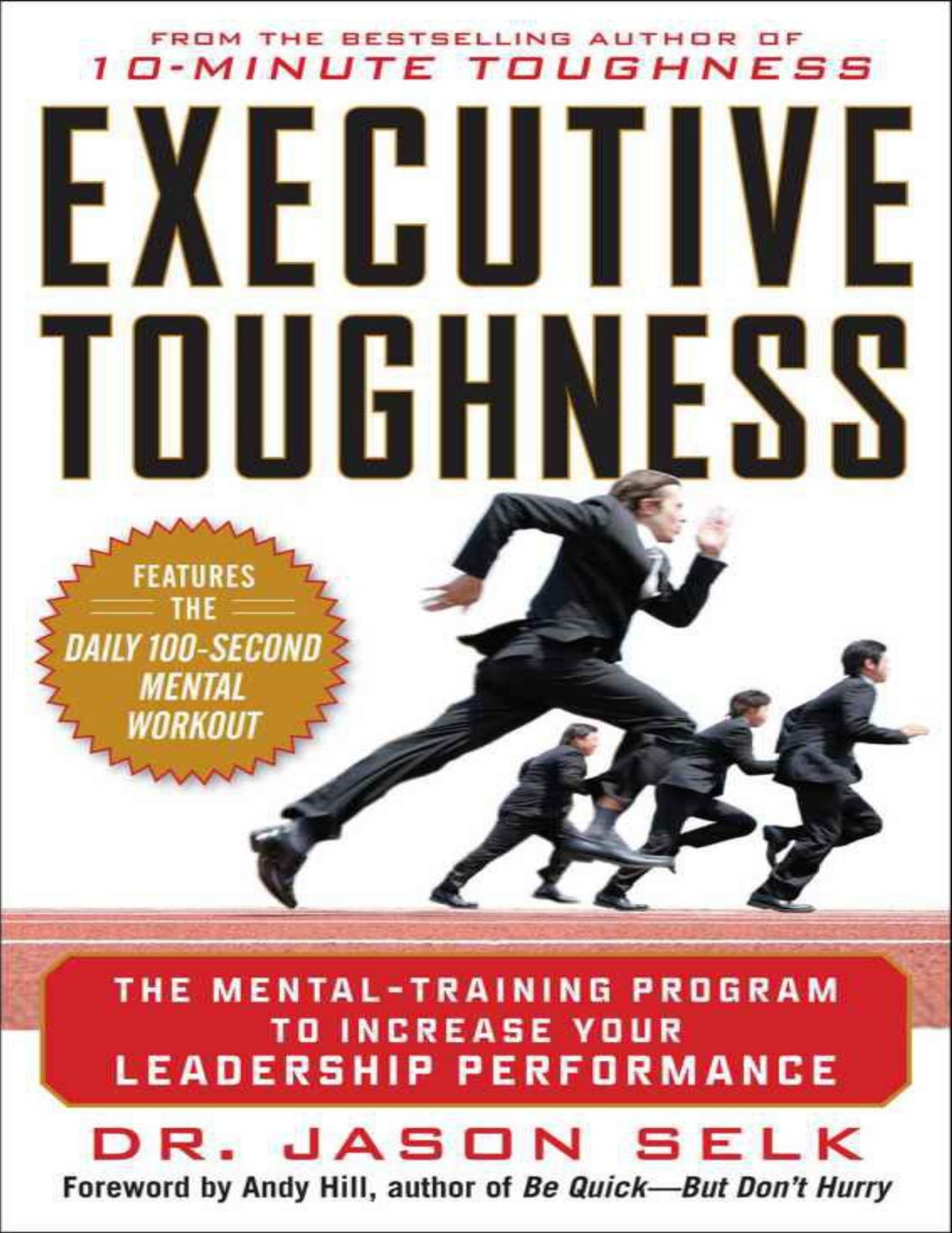Executive Toughness: The Mental-Training Program to Increase Your Leadership Performance : The Mental-Training Program to Increase Your Leadership Performance by Selk Jason

Author:Selk, Jason [Selk, Jason]
Language: eng
Format: epub, pdf
Publisher: McGraw-Hill
Published: 2011-11-03T05:00:00+00:00
POTENTIAL EVALUATION: An evaluation that consists of an aspiration about what the results could or should be.
* * *
Unfortunately, many individuals allow themselves to conduct self-evaluations based on potential rather than actual results. For example, Antonio, a commercial realestate broker I coach, had a product goal of closing 12 deals. At his six-month goal evaluation, I asked him how he was doing, and he said, “Great, everything is lining up to achieve the goal.” His potential evaluation included a description of “two deals that were as good as closed” and “two additional deals that were looking very promising.” When I asked for his reality evaluation, he admitted he had actually closed only four deals in the first six months. At that pace, he would end the year with only eight deals closed, and he would underperform on his goal by 33 percent (Goal of 12 − 8 achieved = 4 short; 4 = 33 percent of 12).
The importance of reality evaluations is probably the most valuable lesson I have learned from working with professional athletes. The truth of the matter is that in professional sports if you don’t produce results, then you won’t be a pro for long. The same goes for my position with the Cardinals: if the players I work with don’t perform better because of my working with them, then I won’t be working with them for long. John Mozeliak, the team’s general manager, has made it very clear to me that if I want to keep my job with the Cardinals, I better help players produce results. If I went to John and said that the players are “on the verge of playing better” or that the “players’ performance looked promising,” my guess is that he would reply with a pink slip.
When you do your evaluations (whether daily or quarterly), use only the true reality of results and avoid letting your mind make judgments based on potential. In life and business, potential success or the promise of a deal often fail to come to fruition. Basing your self-evaluations solely on actual results will give you a much better indication of when you need to change your approach or just plain work harder. Evaluating merely the potential of success will drain your motivation for change because you’re telling yourself that your win is already in the bag.
Using a true reality-based evaluation led Antonio to decide he needed to make changes if he was going to achieve his 12-sale product goal for the year. He decided to increase by 40 minutes per day the amount of time and energy he spent on his process goal of prospecting for new business. As a result, he ended up closing 14 deals in that year.
If you are not on track at each of your quarterly evaluations, using the same process goals will not produce much of a difference in terms of product goal results. So in that case, change or adjust at least one of your process goals related to the product goal that’s coming up short.
Download
Executive Toughness: The Mental-Training Program to Increase Your Leadership Performance : The Mental-Training Program to Increase Your Leadership Performance by Selk Jason.pdf
This site does not store any files on its server. We only index and link to content provided by other sites. Please contact the content providers to delete copyright contents if any and email us, we'll remove relevant links or contents immediately.
Tools of Titans by Timothy Ferriss(8363)
Change Your Questions, Change Your Life by Marilee Adams(7757)
Deep Work by Cal Newport(7063)
Playing to Win_ How Strategy Really Works by A.G. Lafley & Roger L. Martin(6226)
Man-made Catastrophes and Risk Information Concealment by Dmitry Chernov & Didier Sornette(6002)
Big Magic: Creative Living Beyond Fear by Elizabeth Gilbert(5754)
Digital Minimalism by Cal Newport;(5747)
Ego Is the Enemy by Ryan Holiday(5413)
The Slight Edge by Jeff Olson(5410)
The Motivation Myth by Jeff Haden(5203)
The Laws of Human Nature by Robert Greene(5171)
Stone's Rules by Roger Stone(5080)
Tuesdays with Morrie by Mitch Albom(4767)
Eat That Frog! by Brian Tracy(4522)
Rising Strong by Brene Brown(4448)
Skin in the Game by Nassim Nicholas Taleb(4235)
The Money Culture by Michael Lewis(4196)
Bullshit Jobs by David Graeber(4179)
Skin in the Game: Hidden Asymmetries in Daily Life by Nassim Nicholas Taleb(3987)
